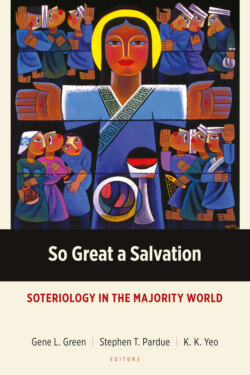Читать книгу So Great a Salvation - Группа авторов - Страница 20
На сайте Литреса книга снята с продажи.
Pentecostal: The Baptism and Gifts of the Holy Spirit
ОглавлениеEmerging from the Holiness tradition is the family of Pentecostal movements originating near the turn of the twentieth century. Just as an Arminian stance cuts across church traditions—with Baptists, for example, being either Arminian, Calvinist, or an amalgam—so Pentecostal beliefs and practices, or openness to them anyway, cuts across other ecclesiastical and soteriological traditions.
Classic Pentecostalism emphasized not merely holiness but empowerment for bold ministry and joyful living. The second, or post-conversion, blessing was baptism with the Holy Spirit, with its initial evidence being glossolalia, or speaking in tongues. Most classic Pentecostals did not say that a person is unsaved without such an experience, but such an experience was to be normatively sought. Various Pentecostal denominations promoted this experience and the distinctively supernatural gifts of the Spirit.
The charismatic movement arose in the middle of the twentieth century across a range of churches, celebrating charismata and promoting Spirit baptism, albeit with less emphasis on the “initial evidence” of tongues. The Vineyard movement arose in the late twentieth century to continue celebrating charismatic and missional empowerment, often adopting a more Reformed account of progressive (less episodic or crisis-oriented) sanctification. Today “Pentecostal” is a broad adjective globally, having lost theological specificity concerning the classic Spirit baptism evidenced by tongues-speaking. Pentecostal soteriologies generally see themselves remedying more classical—not just Protestant but also Catholic and even Orthodox—deficiencies, bringing the Holy Spirit’s work out from under the shadow of excessive Christ-centeredness.
